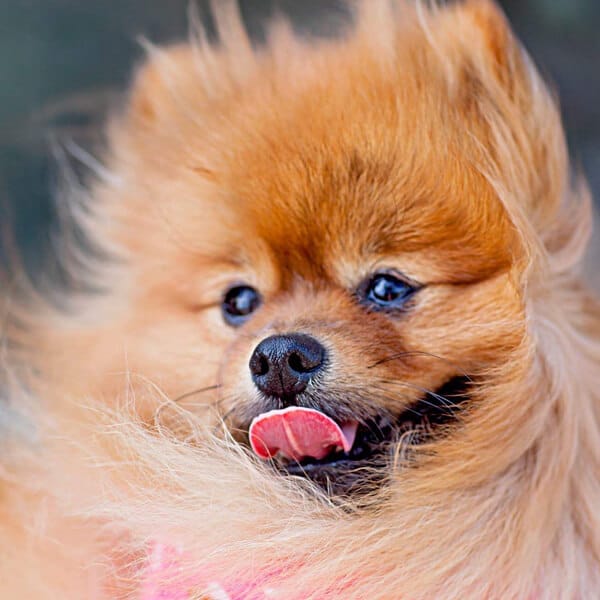Pomeranian Food and Health
Pomeranians are friendly and playful with their owners. However, they don’t get along well with other dogs. They have a long double-coat, with a ruff of fur around the neck that gives the appearance of a mane. Their fluffy, high-set tails sit on top of feathery hair on their hindquarters. Poms are lightweight. Therefore, they don’t suffer from structural issues such as dysplasia. However, they do occasionally have problems with patella luxation. Eye disorders, such as distichiasis and entropion, affect the eyelids causing scarring of the cornea and blindness.
Pomeranians also frequently experience hypoglycemia. This low-blood sugar disorder creates issues with the nervous system that result in seizures and coma-induced brain damage. Tracheal collapse is an issue with poms. The tracheal rings soften and collapse when the dog breathes in, producing a honking noise. Pomeranians with this condition may undergo coughing attacks as a result of environmental stress. Valvular disease is another cause for concern with poms. This degenerative, chronic heart disease leads to thickening of the heart valves which results in a loud heart murmur on the left side of the chest. If left untreated, this chronic condition can develop into congestive heart failure. Patent ductus arteriosus is another cardiovascular condition that affects the Pomeranian. The juncture between pulmonary arteries and aorta does not close at birth, resulting in heart failure. Without surgical intervention, puppies will die within their first year.
Poms may also experience slow metabolic function resulting in hypothyroidism. This hormonal condition leads to weight gain, hair loss, and exercise intolerance. Because of the plethora of health concerns we highly recommend you get dog insurance for your Pomeranian.

